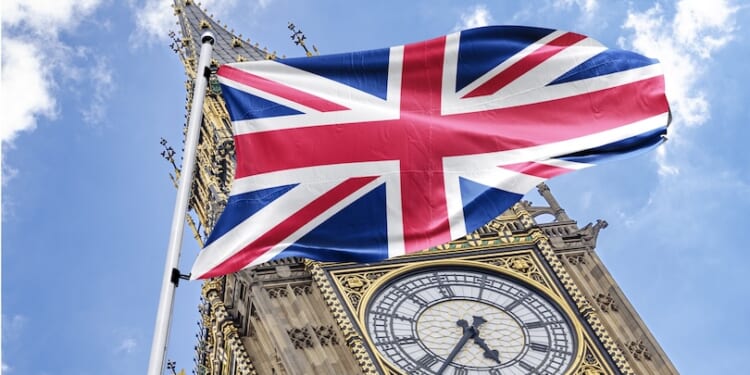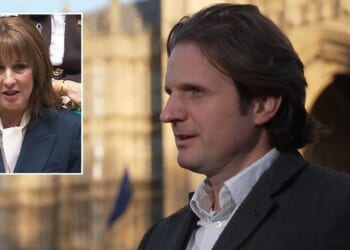LONDON (LifeSiteNews) — A member of the British House of Lords is calling for more restrictions on pornography to mitigate the devastating effects of digital content on the young – although she stops short of calling for a ban.
Baroness Gabrielle Louise Bertin, a Conservative and former Downing Street Press Secretary, recently published an editorial in the Financial Times titled “Time to say ‘enough’ to extreme, unregulated online pornography.”
Bertin noted that over a quarter of the UK population “regularly” views online pornography, and the average age of first exposure is now 13. Bertin observes what I have reported often in this space, which is that ubiquitous pornography use shapes “attitudes, behaviours, and expectations of both adults and children.” It is also a key factor behind the growing mental health crisis amongst the young.
“The independent review I led into harmful pornography laid bare the human cost,” Bertin writes. “I heard heartbreaking stories: a schoolboy waiting for police after committing sexual assault, pleading to be told what he did wrong; 14-year-old boys asking teachers how to choke girls during sex; a nurse describing the rise in sexually inflicted injuries. Nearly 40 per cent of women under 40 have been choked. Erectile dysfunction is rising among men, when real-life intimacy proves less stimulating than online extremes.”
Despite the fact that society has been utterly transformed by pornography over the past several decades, Bertin notes, the pornography crisis has been largely ignored. Age verification is an important but inadequate step. Pornography sites are pumping sexually violent content, including child abuse material and incest themes, into the minds of millions.
“Yet despite the scale of harm, no single government department is responsible,” Bertin noted. “Laws are patchy and rarely enforced. Policing is reactive and reporting inadequate. Advertising standards on pornography sites are barely monitored — as funding streams for free-to-view sites, this needs far greater attention.” In response, Bertin is proposing that online content be regulated similarly to offline content:
The vast majority of content behind the age gate (if it proves effective) would not meet offline standards for legal distribution. Offline, DVDs and Blu-ray content are regulated by the British Board of Film Classification, which prohibits material depicting child abuse, incest, trafficking or torture. The BBFC would be prepared to work with Ofcom, the broadcast regulator, on spot checking and auditing content online, to ensure the industry is abiding by offline standards. The government should take them up on it.
Much of what is online would be illegal to distribute offline and should not be viewed by anyone, of any age. My proposed amendments to the crime and policing bill aim to correct this imbalance. These amendments will ban incest-themed and adult/child role-play content; align online and offline standards; require sites to verify the age and consent of performers, with the right to rescind consent; and ban apps that turn real people’s images into nudes.
Bertin adds that she is “closely monitoring the government’s amendment to criminalise acts of strangulation, choking and suffocation in pornography. Strangulation content has normalised an extremely dangerous and life-threatening act; it is vital we prevent this material from appearing online.”
She is correct. As I reported in a lengthy essay last fall, choking and strangulation have been mainstreamed by pornography in just a few years, and pornography culture now has our girls by the throat.
Bertin’s proposals are excellent, but I must disagree with her on one point. She states, several times, that she is opposed to banning pornography. I think we can, and we should. You can have a booming pornography industry, or you can have a healthy culture – you cannot have both. In the UK, 4% of girls and women reportedly have OnlyFans now. Bertin is right about the crisis – but bolder action will be necessary to adequately address it.


















